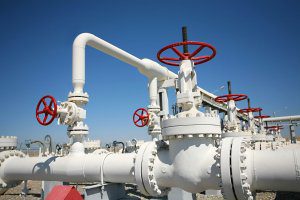
KYIV. July 28 (Interfax-Ukraine) – Ukraine’s Cabinet of Ministers has approved the project on modernization and overhaul of the section 3,364.5-3,391.2 km of the Urengoy-Pomary-Uzhgorod gas pipeline.
The corresponding decision is outlined in Cabinet resolution No. 523-r dated July 22, 2016, posted on the government’s portal.
The total cost of repairs of the section 26.7 km long was approved at UAH 1.214 billion, in particular, UAH 957.637 million will be used for construction work, UAH 14.33 million for equipment, while other expenses will amount to UAH 241.562 million.
The duration of overhauls is 18 months, in particular, the first launch phase – four months, the second phase – nine months and the third phase – five months.
Previously the Cabinet by its resolutions issued in 2013 through 2015 approved the projects of modernization and overhaul of the Urengoy-Pomary-Uzhgorod gas pipeline: the sections 3,616.8-3,626.62 km (the length is 9.82 km), 3,729-3,749.017 km (20.017 km), the section 3,974.77-4,008.45 km (33.68 km) and the section 4,101.3-4,128.4 km (27.1 km).
The total cost of reconstruction of the first section was approved in the amount of UAH 187.1 million, the second one at UAH 477.4 million, third – UAH 995.2 million and fourth – UAH 899.1 million.
In November 2015, Ukrtransgaz reported that construction of a new section of the Urengoy-Pomary-Uzhgorod gas pipeline of 9.82 km long was finished. The section will replace the previous one.

KYIV. July 26 (Interfax-Ukraine) – State-run enterprise Ukrspecexport saw a 76.19% rise in net profit under Ukrainian accounting standards in January-June 2016 year-over-year, to UAH 69.3 million, the company has said in a report.
Its net revenue grew by 93.1% in H1 2016, to UAH 1.377 billion. The company saw a 3.4-fold rise in gross profit, to UAH 923.88 million and a 4.4-fold rise in operating profit, to UAH 90.56 million.
In January-March 2016 Ukrspecexport saw a 36.51% decline in net profit year-over-year, to UAH 21.95 million and net revenue decreased by 30.29%, to UAH 310.68 million.
Ukrspecexport saw a 2.4-fold rise in net profit under Ukrainian accounting standards in 2015, to UAH 91.87 million. The company saw a 2.7-fold rise in net revenue, to UAH 1.8 billion.
Ukrspecexport is the state’s authorized mediator in foreign economic activities in the field of exports and imports of products and services that are subject to export controls.
Under a government decision, Ukrspecexport and its subsidiaries have been part of state-owned Ukroboronprom concern since December 2010.
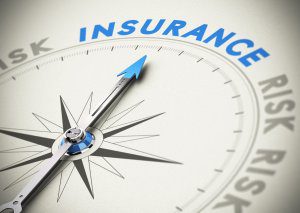
KYIV. July 27 (Interfax-Ukraine) – INGO Ukraine insurance company (Kyiv) saw a 16.9% rise in collection of insurance premiums, to UAH 424.2 million, the insurer has said in a press release.
The company said that the share of voluntary car insurance (KASKO) was 31.9% of the total insurance portfolio (UAH 135.5 million), household insurance – 22.8% (UAH 97.1 million), voluntary medical insurance – 14.7% (UAH 62.6 million) and Green Card – 13.9% (UAH 59.4 million).
The company signed 123,000 insurance agreements over the period, including 68,000 agreements with individuals and 54,000 with companies.
The company paid UAH 163.6 million in claims (47.1% down). The level of payments was 38.5% (85.17% in H1 2015).
According to the press release, net profit in H1 2016 was UAH 16.7 million (58.1% down).
Insurance reserves as of June 30, 2016 amounted to UAH 646.1 million. Over 80% of them are covered by liquid assets in the form of cash on current and deposit accounts of the company. The company’s solvency is 4.5 times bigger than it is required. Its assets totaled UAH 1.408 billion.
Net worth reached UAH 581.8 million in H1 2016. Charter capital was UAH 305.5 million.
“Today we are introducing a new operation strategy, the implementation of which would help INGO Ukraine to be among leaders of the insurance market in next five or ten years,” Board Chairman Ihor Hordiyenko said.
INGO Ukraine has been operating since 1994. It has 28 licenses for different types of compulsory and voluntary insurance. It has 25 branches.
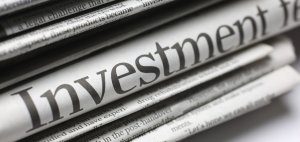
KYIV. July 27 (Interfax-Ukraine) – Ukrainian Prime Minister Volodymyr Groysman and ambassadors of Arab countries accredited in Ukraine have discussed the prospects of stepping up cooperation in different areas and the possibilities of investing into the Ukrainian economy.
“Today I met heads of diplomatic institutions of Arab countries in Ukraine… I am thankful to ambassadors of Arab countries for their deep interest in the course of reforms and the possibility of investing in the Ukrainian economy,” Groysman wrote on his Twitter page late on Tuesday.
He said that the possibility of enhanced cooperation in trade, education, infrastructure and agriculture was discussed.
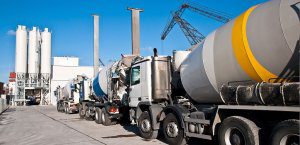
KYIV. July 26 (Interfax-Ukraine) – Cement production in Ukraine in January-May 2016 increased by 10.5% year-over-year, to 3.19 million tonnes, CEO of Ukrcement cement producers’ association Roman Skilsky has said in an interview with Interfax-Ukraine.
“Taking into account growth the sector showed in the five months of this year – if it is a real trend reflecting the stir up in the construction sector, by the end of the year the cement sector could produce more than 9 million tonnes of cement,” he said.
Cement production in Ukraine would grow by 10% in 2016 compared to 2015, taking into account the seasonal specific of the sector under the condition that the sector will operate well, Skilsky said.
He said that in January-March 2016 exports of Ukrainian cement reached 62,700 tonnes. This is 71% up year-over-year. The share of exports of total cement production in the first quarter of 2016 (1.529 million) was 4.1%.
Skilsky said that these exports figures do not reflect the potential of the Ukrainian cement sector. They are linked to the introduction of various restrictions by key exports markets.
“The trend could have been upward if not for two things happened. First, Moldova introduced quotas for several types of industrial products, including cement, from May 13. Last year we exported around 140,000 tonnes of cement to this country. Now the quota is 500 tonnes, or nothing. Secondly, Belarus early suspended the certificates for batch production of Ukrainian cement [for three years] and introduce certification of cement batches,” he said.
“As a result, we expect that exports to Belarus and Moldova would considerably fall. These were the largest exports markets for Ukraine. Taking into account imports of clinker from Russia, we would see the negative impact on the entire exports-imports balance of Ukraine by the end of the year for 2532 commodity group (various types of cement and clinker),” he said.
Skilsky said that the sector intends to focus on development thanks to the domestic market, at least, until Ukrainian producers will have a chance to export to European countries.
Ukrcement unites Dyckerhoff Cement Ukraine, Heidelbergcement Ukraine, Ivano-Frankivskcement, Eurocement-Ukraine, Podilsky Cement, Mykolaivcement and Cement LLC (part of CRH Group).
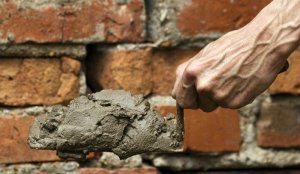
KYIV. July 26 (Interfax-Ukraine) – The introduction of European standards for cement production in Ukraine would help to restrict opportunities for producing and spreading counterfeit products on the market, CEO of Ukrcement cement producers’ association Roman Skilsky has said.
“We declare that from January 1, 2017 we, as the sector, could switch to production and testing of cement under new standards. We believe that the new standards would help to cut off, or at least narrow the opportunities for companies producing counterfeit products,” he said in an interview with Interfax-Ukraine.
He said that the sector producing construction materials on the basis of cement are to switch to European standards.
“It is important to understand if the state has a strategy for this switch, in particular, for the revision of construction requirements, taking into account new standards,” he said.
Skilsky said that large construction materials retail chains in Ukraine permit sales of counterfeit cement in their stores. The most obvious sign of counterfeit products is wrong labeling of packages with cement.
“The wrong labeling is a first signal of counterfeit products in the package. First, buyers should be attentive when there is no information about the manufacturer on the package. There are such cases everywhere, even in large chains,” he said.
He said that after the recent monitoring of the packaged cement market finished late 2015, Epicenter and Nova Linia retail chains took measures to remove wrongly labeled products from their stores. Representatives of other retail chains did not contact the association to settle the issue.
“Today we do not name these companies. We plan to continue monitoring of retail channels, establish dialog and finally bring the packaged cement market to the legal environment… the results of the future monitoring, including violations, will be published in mass media,” he said.
Skilsky said that according to GfK research company, the share of counterfeit products on the Ukrainian packaged cement market is 50%.